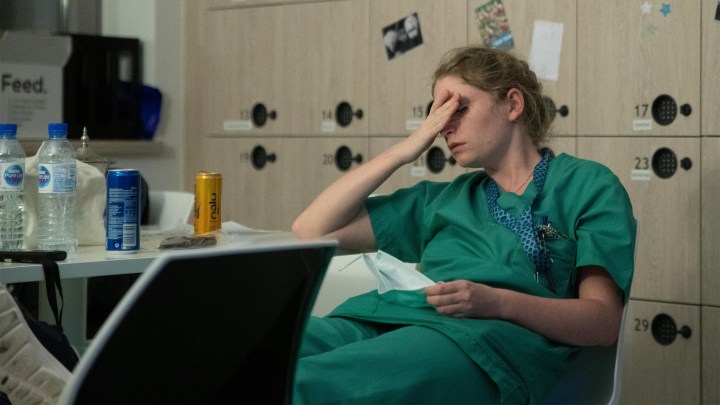
How to stay healthy on a night shift

This story was produced by our colleagues at the BBC.
While the rest of us sleep, millions of people in the U.S. and around the world work the graveyard shift in jobs such as health care, cleaning, fast food and factories. Medical evidence suggests they’re at increased risk of developing diabetes, heart disease and obesity. So how can they stay healthy, and whose responsibility is it to help them?
Ahmad Booley is a pizza delivery driver in Cape Town, South Africa. “I enjoy working night shifts because people tend to tip you a bit more the later the order comes through,” he said.
It’s good for Booley’s bank balance, but as for his diet, “I tend to eat fast food, but it’s not particularly the healthiest,” he said.
It’s not just lower-paid workers on the night shift, but also professionals, like Dr. Vashali Bunatti, who works at a hospital in Mumbai, India. “At 2 a.m. in the morning, we always feel hungry,” she said. “We eat snacks like chips or some biscuits. I have gained weight in the last three to four months.”
The urge to eat unhealthy snacks will be very familiar to anyone who’s ever worked a night shift. So why does the body respond in this way?
“Our digestive system doesn’t function in the same way during the night as it does during the daytime,” said Audra Starkey, an Australian nutritionist and the founder of the “Healthy Shift Worker” podcast.
The body needs a period of fasting at night, she said, as our digestive systems slow down because we’re meant to be asleep. But workers need fuel. So how should they eat?
“Have a main meal, like you would normally, but eating no later than around 9 p.m. — maybe just a very light snack around midnight,” Starkey said. “And then you fast from around midnight through to 6 a.m.”
This idea of time-restricted eating was put to the test with firefighters working shifts in San Diego. Dr. Pam Taub, a cardiologist who led the research, said they were asked to only eat during a chosen 10-hour period.
“There were some significant benefits, including a decrease in a certain type of bad cholesterol particle, and we also saw some improvements in quality-of-life metrics,” Taub said.
Employers are only just beginning to recognize the effects of night shifts on people’s health. Night Club is a U.K. organization that helps businesses like grocery stores give workers practical advice on diet, access to health checks and input on scheduling.
Veronika Meyer is one of the organization’s co-directors. “First of all it’s the right thing to do as an employer,” she said, “but also because it just makes good business sense in terms of productivity and attrition.”
Nimisha Raja is the founder of Nim’s Fruit Crisps, a U.K. company that makes fruit and vegetable chips. She thinks it might be a bit too much for employers to make nutritional recommendations to their workers.
“I think that some of them would say. ‘I’m sorry, but who do you think you are telling me how to live my life? You know, I’m coming in to do a job, get paid and go home — not to be told off.'”
She’s also concerned about having to pay for health checks or dietary advice for her employees. “If it starts costing us a lot of money, that would be not viable.”
But with several high-income economies facing labor shortages, some advocates suggest that — even if the employers had to pay for the checkups — it could be a sound investment.
There’s a lot happening in the world. Through it all, Marketplace is here for you.
You rely on Marketplace to break down the world’s events and tell you how it affects you in a fact-based, approachable way. We rely on your financial support to keep making that possible.
Your donation today powers the independent journalism that you rely on. For just $5/month, you can help sustain Marketplace so we can keep reporting on the things that matter to you.

















